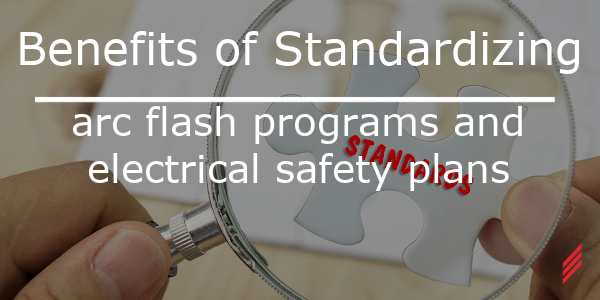10 Steps to Consider When Budgeting for Arc Flash Safety
by Jason Mazzola on Oct 26, 2023 10:30:00 AM

Arc flash budgeting involves estimating the costs associated with implementing safety measures and equipment to mitigate the risks of arc flash incidents in an industrial or commercial setting. Arc flash incidents occur when an electrical discharge travels through the air between conductive surfaces, producing a bright flash and extreme heat that can cause fires, explosions, and severe injuries to personnel.
Here are 10 steps to consider when budgeting for arc flash safety:
#1 Arc Flash Risk Assessment
Begin by conducting a comprehensive arc flash risk assessment. This assessment involves identifying potential arc flash hazards, evaluating equipment, and determining the likelihood and severity of incidents. This assessment will guide your budgeting process by identifying the specific areas and equipment that require attention.
#2 Safety Equipment and PPE
Arc flash protective equipment and personal protective equipment (PPE) are crucial for personnel working with or near electrical systems. Budget for purchasing and maintaining items such as arc-rated clothing, face shields, gloves, helmets, and insulated tools.
#3 Engineering Controls
Implement engineering controls to reduce the risk of arc flash incidents. This may include equipment modifications, upgrading protective relays, installing arc flash detection systems, and using remote operation technology. Budget for the design, purchase, installation, and maintenance of these systems.
#4 Training and Education
Adequate training is essential to ensure that workers understand the risks associated with arc flash and how to handle equipment to prevent incidents properly. Budget for training programs, workshops, and resources that educate employees about arc flash hazards, safety protocols, and emergency response procedures.
#5 Maintenance and Testing
Regular inferred inspections, maintenance, and testing of electrical equipment are critical for preventing arc flash incidents. Budget for routine inspections, testing, and maintenance of electrical systems, including the replacement of outdated or faulty equipment.
#6 Documentation and Compliance
Having a write electrical safety plan (ESP) along with proper documentation of arc flash assessments, safety measures, and incident response plans is essential for compliance with industry regulations and standards. Allocate funds for documentation efforts, including software solutions for managing arc flash data and compliance requirements.
#7 Emergency Response
Develop an emergency response plan that outlines procedures for handling arc flash incidents, including evacuation plans, communication protocols, and first aid training. Budget for resources related to emergency response, such as alarms, evacuation signage, and first aid supplies.
#8 Contractor and Consultant Services
Depending on the complexity of your electrical systems and the expertise of your staff, you might need to budget for hiring external contractors or consultants to conduct arc flash assessments, provide training, or assist with implementing safety measures.
#9 Contingency Fund
Set aside a contingency fund to account for unexpected costs that may arise during the implementation of arc flash safety measures or in response to incidents.
#10 Long-Term Planning
Consider the long-term costs of maintaining and updating arc flash safety measures. Electrical systems and equipment change over time, so budget for periodic reviews and updates to your safety protocols and equipment.
It's important to note that the specific budget allocation for each of these steps will vary depending on the size and complexity of your facility, the level of risk, and the regulatory requirements in your region. Working with experts in electrical safety and arc flash mitigation can help you develop an accurate and effective budget for your organization's needs.
About the author
Jason Mazzola is the Director of Electrical Safety Services for Southern New England out of our Mansfield, MA office. He joined Hallam-ICS in 2019 and prior to that spent 10 years in utility industry in various engineering and leadership roles.
About Hallam-ICS
Hallam-ICS is an engineering and automation company that designs MEP systems for facilities and plants, engineers control and automation solutions, and ensures safety and regulatory compliance through arc flash studies, commissioning, and validation. Our offices are located in Massachusetts, Connecticut, New York, Vermont, North Carolina, Texas and Florida and our projects take us world-wide.
You May Also Like
These Related Stories

Benefits of Standardizing Arc Flash Programs and Electrical Safety Plans

The Wrong Time to Find Out Your Arc Flash Study is Outdated…



No Comments Yet
Let us know what you think